24 TIRTHANKARAS
About Tirthankara
A tirthankara comes to the world to show the path to that liberation or moksha.
Tirthankar is not an incarnation of God. He is an ordinary soul who comes into this world as a human being and who through practicing austerity, being endowed with an undisturbed disposition, and engaged in deep meditation gains the status of a Tirthankar. Therefore, Tirthankar is not an Avatar – the god that incarnates in a human body – but it is the final stage of a human soul’s development.
The Tirthankaras were not religious founders, but supreme enlightened beings who appeared at different periods in man’s civilization. They attained the ultimate purpose of life and then showed their contemporary how they could get there by moving to the other side of essences having crossed the stream to the glorious spiritual plane.
Each new Tirthankara that appears teaches the same basic Jain philosophy; however, they give the Jain way of life different facets to accommodate the age and culture where they teach.
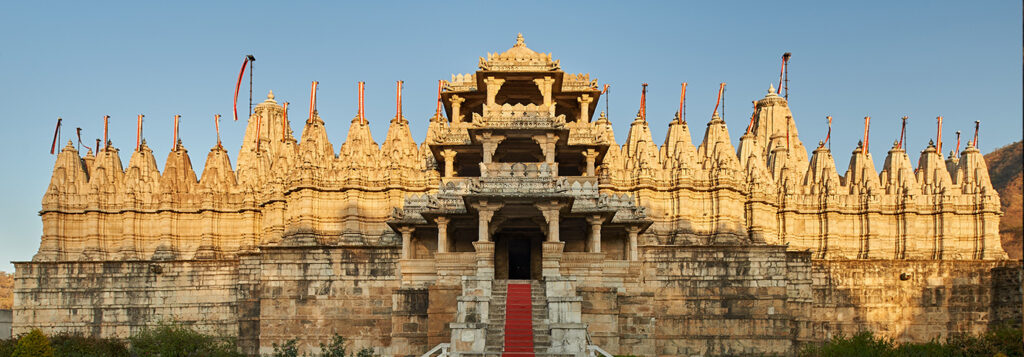
Meaning of Tirthankara
The term Tirthankara can originate from two words of the Sanskrit language that include Tirtha which is interpreted as a ford or a crossing way, and Kara which means maker. Therefore, a Tirthankara is one who enables other sensitive souls to form this ‘jarita’ or ocean of sansar or worldly existence and attain moksha or liberation.
In contrast to intercessory prayers in other religions, Jainism Tirthankaras serve as role models. They are not adored to be worshipped for personal benefits but are respected for teaching the way to the everlasting peaceful world completely untouched by the veil of repeats. of birth, death, and suffering.
Meaning of Tirthankara
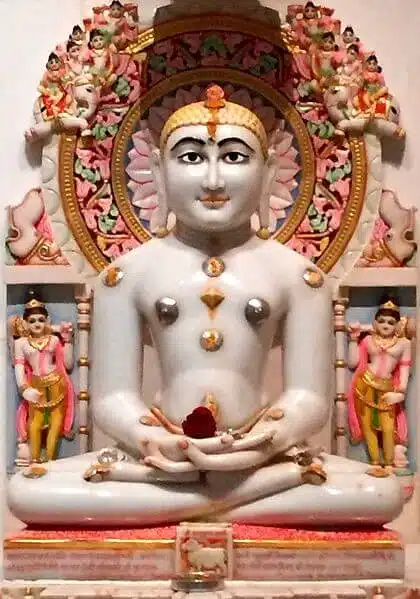
Rishabhdev
- Symbol: Bull
- Birthplace: Ayodhya
- Father: Nabhi
- Mother: Maru Devi
- Time Period: Prehistoric (84,00,000 Purva)
- Key Teachings: According to Jain tradition, Rishabhanatha the first Tirthankara who is believed to have institutionalized agriculture business faculty and other basics of life. He gave
Rishabhanatha or Adinatha is the first of twenty-four Tirthankaras, sacred Jain souls who made vows to stay away from worldly sins and materialistic aspects of life. He is thought to have lived during the early days of human culture. He was the son of a world monarch King Nabhi and Queen Marudevi and he governed his kingdom with knowledge and kindness. He explained to people such things as farming, rearing of livestock, and barter which formed the basis of a more refined society. On completion of his responsibilities towards the royalty, he abandoned his palace life, practiced rigorous austerity, and achieved Kevala Jnana (means omniscience). They say he had been spending many of his years passing the knowledge and preaching on how to attain moksha and finally got liberated at Mount Kailash.
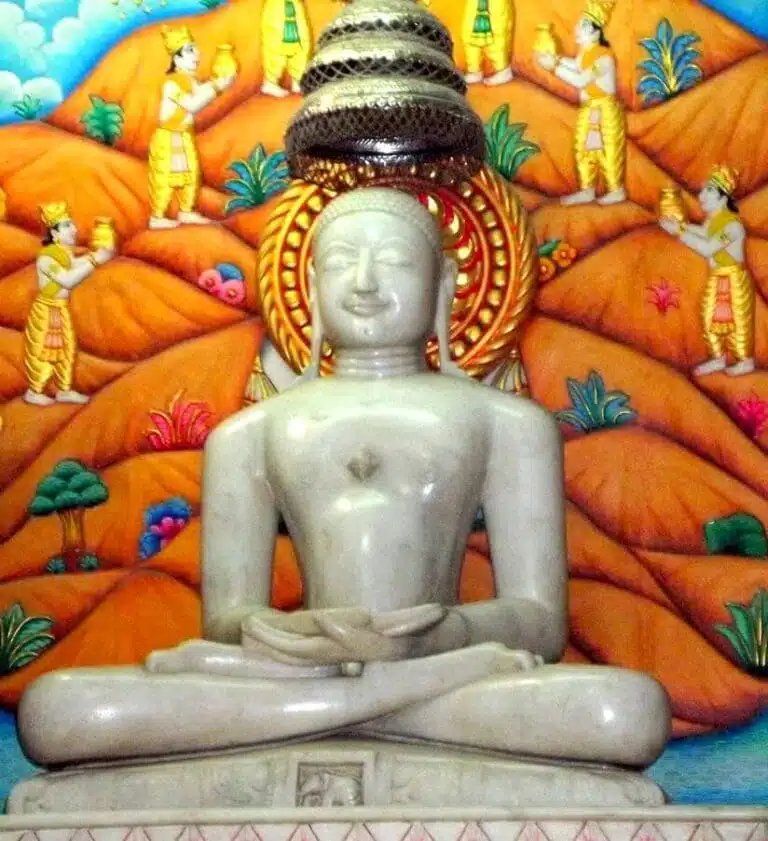
Ajitnath
- Symbol: Elephant
- Birthplace: Ayodhya
- Father: Ayodhya
- Mother: JitSatru
- Time Period:Prehistoric (72,00,000 Purva)
- Key Teachings:Ajitanatha underlined non-attachment and self control. He propounded how it is possible to gain spiritual growth through denial of material possessions.
Ajitanatha the second Tirthankara was born to the royal couple, Jitashatru and Vijaya. Like Rishabhanatha, Ajitanatha was also royal and he ruled a kingdom to prosperity. His childhood taught tolerance and knowledge, as well as a well-developed sense of justice. He left his worldly life to which he was a royal prince after witnessing the reality of life and he decided to practice asceticism. He did harsh austerities and finally embraced Kevala Jnana.
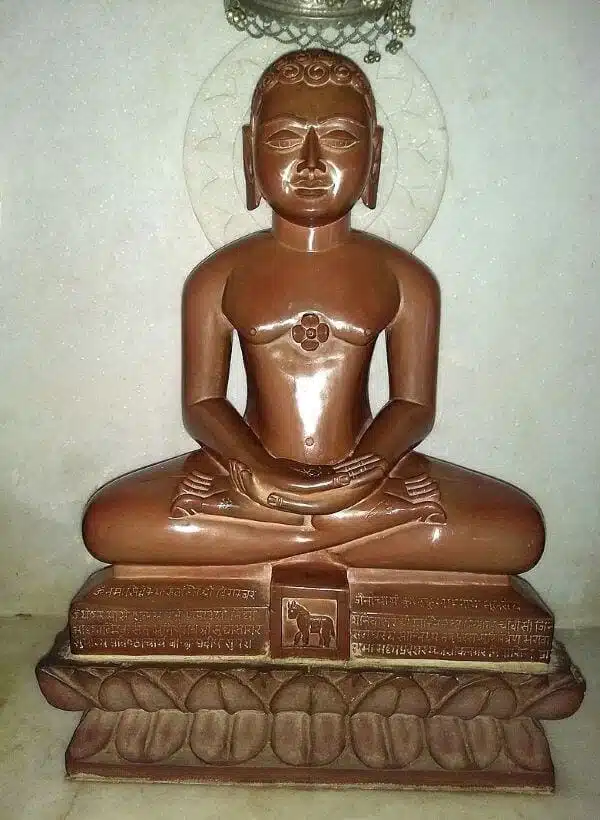
Sambhavnath
- Symbol: Horse
- Birthplace: Shravasti
- Father: Jitari
- Mother: Sena
- Time Period: Prehistoric (60,00,000 Purva)
- Key Teachings:TeaSambhavanatha addressed himself to non-violence and order, and emphasized that, while morality is the means to liberation, one must avoid all forms of immoral action.
Ajitanatha the second Tirthankara was born to the royal couple, Jitashatru and Vijaya. Like Rishabhanatha, Ajitanatha was also royal and he ruled a kingdom to prosperity. His childhood taught tolerance and knowledge, as well as a well-developed sense of justice. He left his worldly life to which he was a royal prince after witnessing the reality of life and he decided to practice asceticism. He did harsh austerities and finally embraced Kevala Jnana.
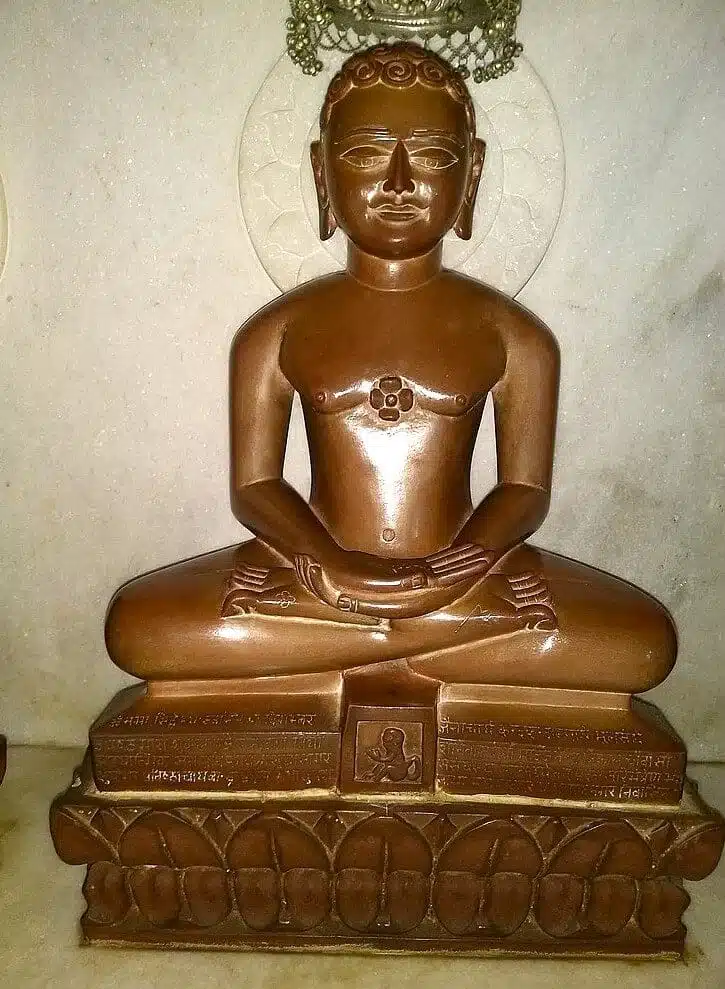
AbhinandanSwami
- Symbol: Monkey
- Birthplace: Samet Sikhar
- Father:Samvar
- Mother: Siddhartha
- Time Period: Prehistoric (50,00,000 Purva)
- Key Teachings: Abhinandananatha is well known for advocating non-attachment to material things, as well as for encouraging people to practice and meditate since it brings light.
Abhinandananatha a Jaina saint who attained salvation was born in Mithila to King Sinha and Queen Satyaki. He was modest and lowly; and gentle. He was involved in a simple life of service to his kingdom. Then he quit his throne, his materialism despairing him to seek the reality of spirituality. He then attained absorption and reached Kevala Jnana; for the rest of his life, he taught the way to attain moksha.
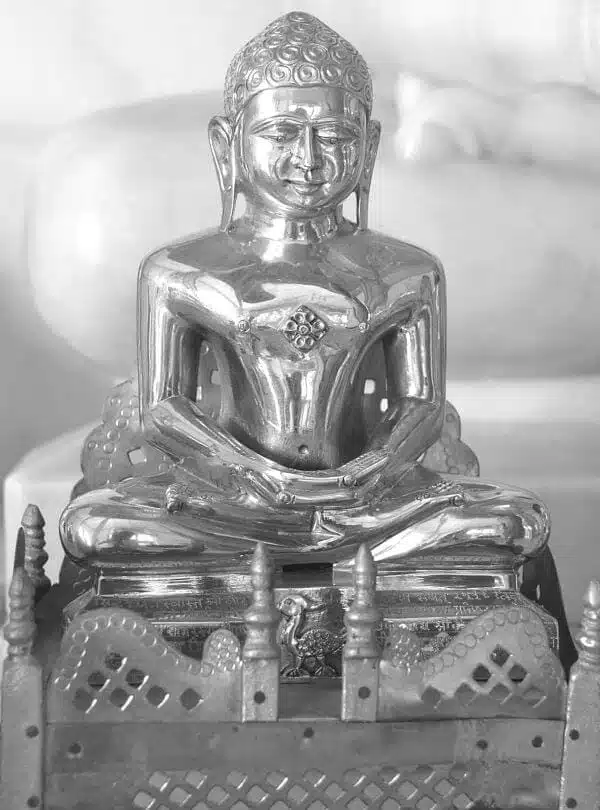
Sumatinath
- Symbol: Goose
- Birthplace:Ayodhya
- Father:Megharath
- Mother: Mangla Devi
- Time Period: Prehistoric (40,00,000 Purva)
- Key Teachings: Sumatinatha explained about understanding, clear vision and right actions. He also supported peace and humane life principles demoralizing unethical behaviors.
The Sumatinatha was born to Megha, who was the king and Mangala, the queen of the kingdom. He was a bright child right from childhood hence was nicknamed Sumati which translates to wise intellect. He was a king extraordinaire who governed his kingdom right, if not left, which saw many of his people living affluent lives. Finally, he heard the call of higher knowledge and became a sage, which means that he left the world. He became all-knowing after performing long austerities.
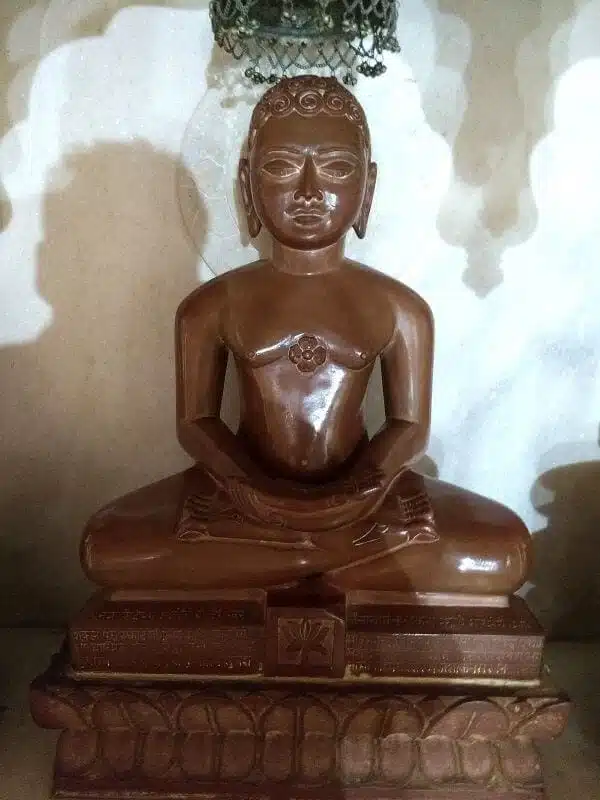
Padmaprabha
- Symbol: Red Lotus
- Birthplace: Samet Sikhar
- Father:Shridhar
- Mother: Susima Devi
- Time Period: Prehistoric (30,00,000 Purva)
- Key Teachings: In general, Padmaprabha focused on the two principles – purity and spiritual detachment. He also dwelled on living with mental and emotional health.
Padmaprabha was born as a prince to King Shridhar and Queen Susima. He was named after the lotus since he had a beautiful fair complexion. A responsible and sympathetic monarch who spent all the time of his reign thinking about his subjects. But he quickly came to understand that material success was transient, so after giving up his throne he wanted to put an end to ignorance and gain release. He gets his Kevala Jnana after deep concentration.
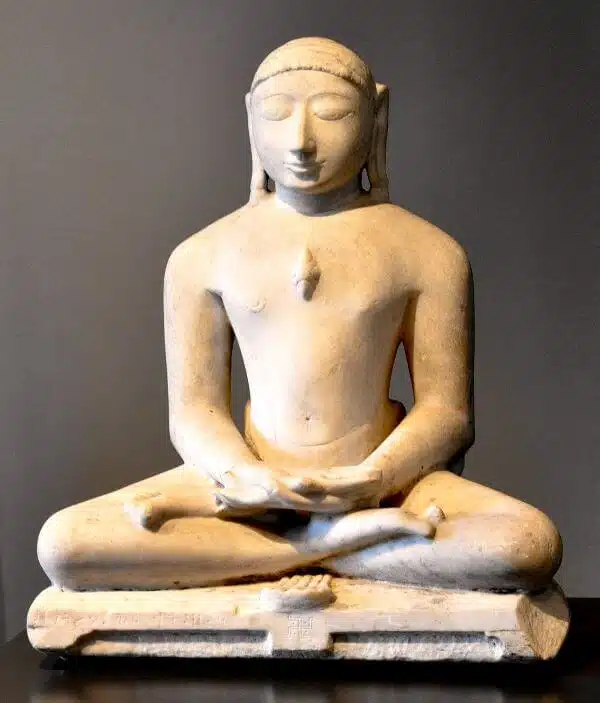
Suparshvanath
- Symbol: Swastika
- Birthplace: Samet Sikhar
- Father: Pratishtha
- Mother: Prithvi Devi
- Time Period: Prehistoric (20,00,000 Purva)
- Key Teachings: Suparshvanatha preached his message of hands Violence and embraced a moderate way of living and protecting the mental self-training of the followers.
Suparshvanatha was the son of a king Pratistha and a queen Prithvi. This kid had so much wisdom and compassion for every one from the moment that he was born. He was kind, fair and a wise king who still the way of his predecessors relinquished his throne for the purpose or a spiritual life. Suparshvanatha got liberated after numerous years of practicing meditation, and austerity.
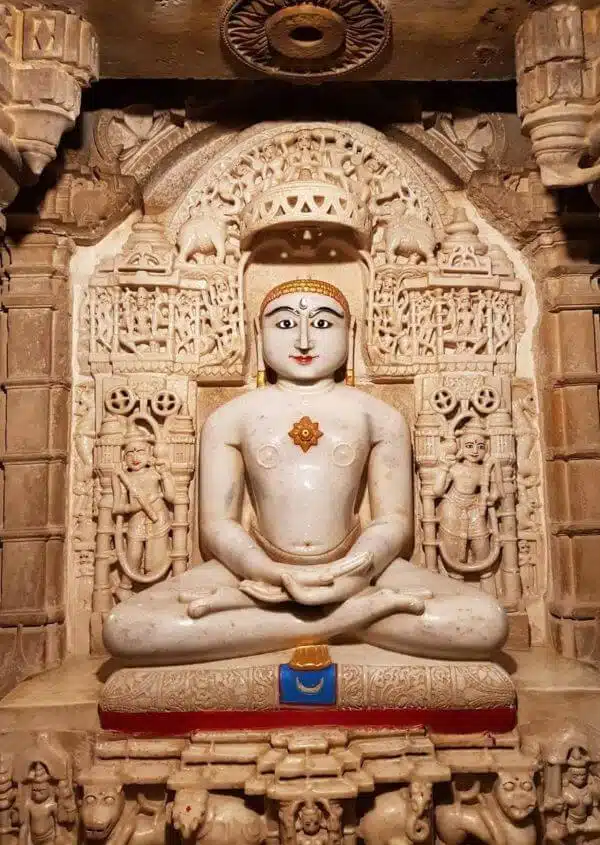
Chandraprabha
- Symbol: Crescent Moon
- Birthplace: Chandrapuri
- Father: Mahasen
- Mother:Lakshmana
- Time Period: Prehistoric (10,00,000 Purva)
- Key Teachings: Chandraprabha over the body centred on calmness and tranquility of mind. He urged them to be composed, to avoid anger, and to be intelligent, in other words, non-violent.
Chandraprabha, the first-born child of King Mahasena and Queen Lakshmana was born in Sri Lanka. He was known to be quiet, calm and collected and he exercised his power fairly and benignly. He got more and more dissatisfied with the ephemeral nature of the rewards this world offers and took up the life of a hermit. Kevala Jnana was gained by him after intense meditation or the practice of deep penance.
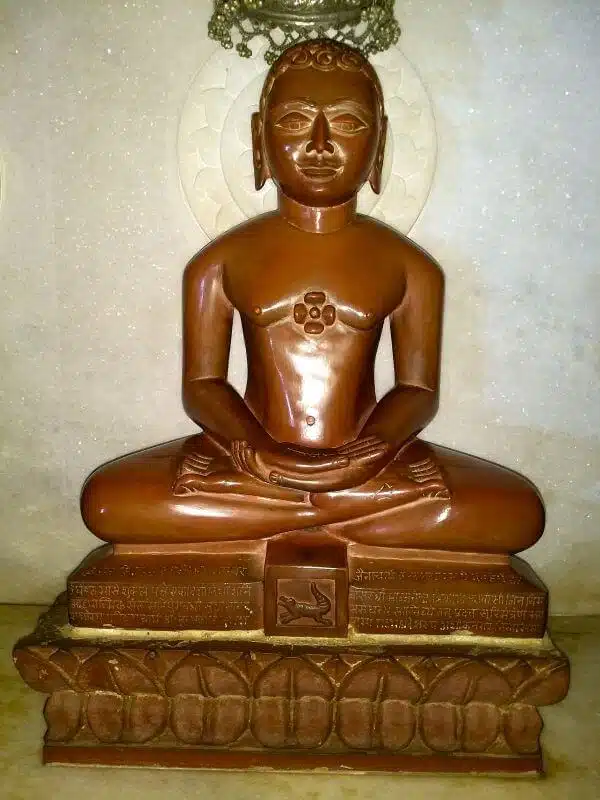
Suvidhinath
- Symbol: Crocodile
- Birthplace: Kakandi
- Father: Sugriva
- Mother: Rama Rani
- Time Period: Prehistoric (2,00,000 Purva)
- Key Teachings: Suvidhinatha also showed the principle of charity, righteousness and selflessness is the way to be led to the path of liberation.
Suvidhinatha was born from King Sugriva and Queen Rama. From what is on record, he was blessed with a fantastic brain and superb skills. He lived fairly for many years as a king exercising justice and fairly ruling the kingdoms, upon which the desire for worldly things diminished and he abandoned the secular. By very strict self rule, Suvidhinatha became omniscient.
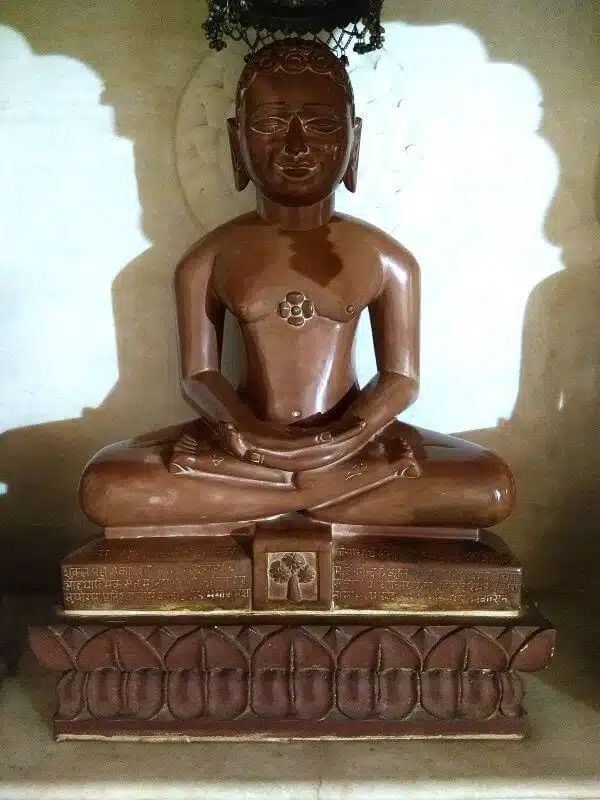
Shitalnath
- Symbol: Wishing Tree (Kalpavriksha)
- Birthplace: Bhadrikpuri
- Father: Dradharath
- Mother: Nanda Rani
- Time Period: Prehistoric (1,00,000 Purva)
- Key Teachings:Shitalanatha thus taught non-activity, non-attachment to the body and calmness. More to that he said that the soul is not nurtured by food, or water but only when one’s mind is at rest.
Shitalanatha was the son of King Dridharatha and Queen Nanda. He was a great ruler who was fair and kind, as all Tirthankaras were, but like all other Tirthankaras, he saw the impermanence of the world. He gave up his throne and sought salvation through austerity and yoga ultimately attaining the state of Kevala Jnana.
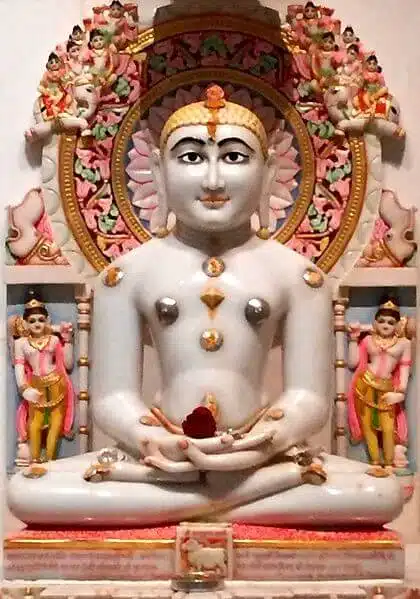
Shreyansanath
- Symbol: Rhinoceros
- Birthplace: Samet Sikhar
- Father: Vishnu
- Mother: Vishnu Devi
- Time Period: Prehistoric (84,00,000 Years)
- Key Teachings: Shreyanasanatha seemed to gain support towards right conduct, restraint and proper conduct towards the attainment of Spiritual progress.
Shreyansanatha was born in Simhapuri city to parents who were King Vishnu and Queen Vishnu Devi. Even as a boy, he was endowed with good hearts, which characterized his reign as a king, and a wise one. Finally, he abdicated and turned into a hermit. Shreyansanatha had been so proficient in his penance that he eventually rose to omniscience.
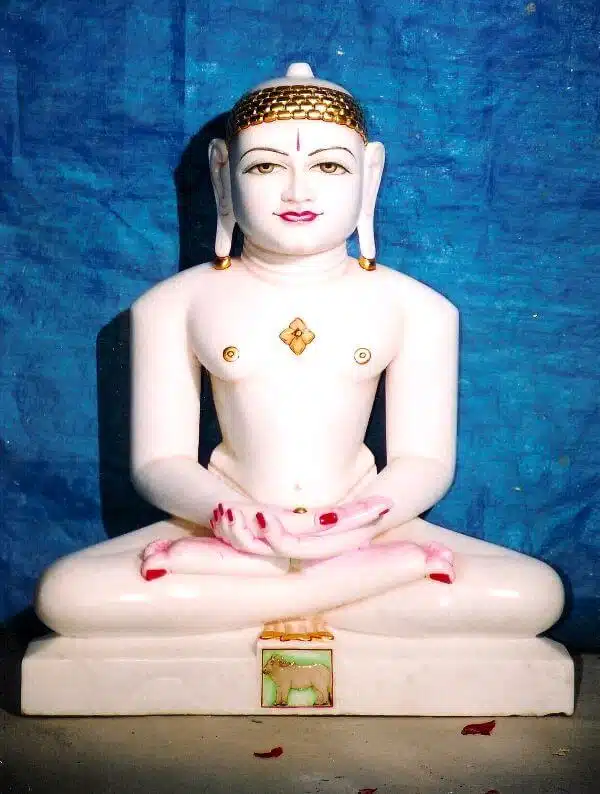
Vasupujya
- Symbol: Buffalo
- Birthplace: Champapuri
- Father: Vasupujya
- Mother: Jaya Devi
- Time Period: Prehistoric (72,00,000 Years)
- Key Teachings: Vasupujya preached on asceticism and temperance, which preached patience and tolerance, simple living and steadiness and removal of desire.
Vasupujya was born in the city of Champapuri from parents King Vasupujya and Queen Jaya. A hero and a benevolent king, who defended his people and protected them from misfortune and troubles which troubled the rest of the country. These experiences have beel narrated to portray King Bharat as a successful monarch, but he had requisite spiritual life, so left the kingdom in the search of realization. Through years of penitentiary, Vasupujya got Kevala Jnana.
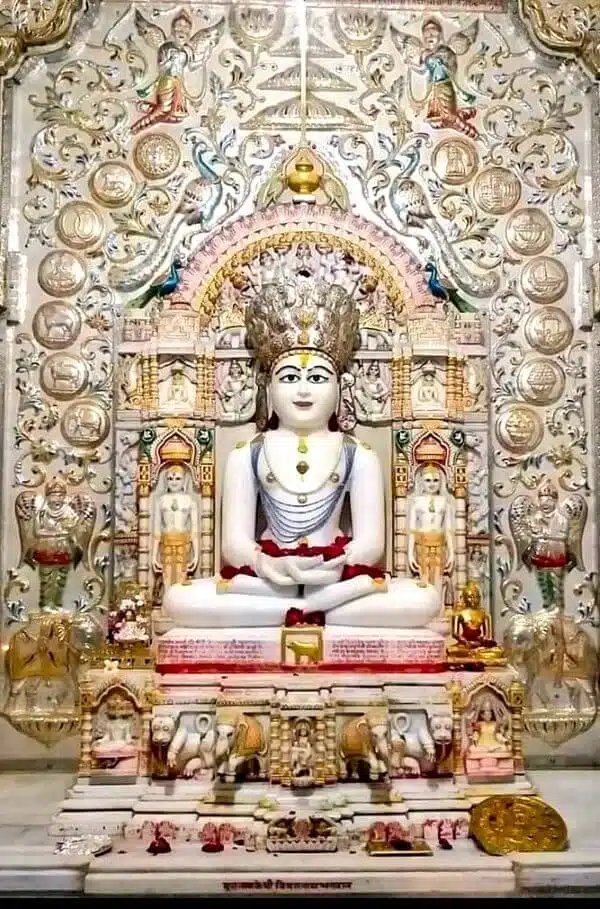
Vimalnath
- Symbol: Boar
- Birthplace: Kampilya
- Father: Krutavarma
- Mother: Shyama Devi
- Time Period: Prehistoric (60,00,000 Years)
- Key Teachings: Vimalanatha recognised the need for purity of both mind, body, and spirit. He was actually preaching honesty and obeying the laws of the land.
Vimalanatha was born to King Kratavarma and Queen Shyamadevi in Kampilya and was a descendent from sage Vishwamitra. When he acted as a king, he was always fair and had the clear conscience of most righteous men. But as the so-called Ellis understood that there is no eternity in the spirit of wealth, he abdicated from the throne and became an ascetic. After years of his penance he became omniscient.
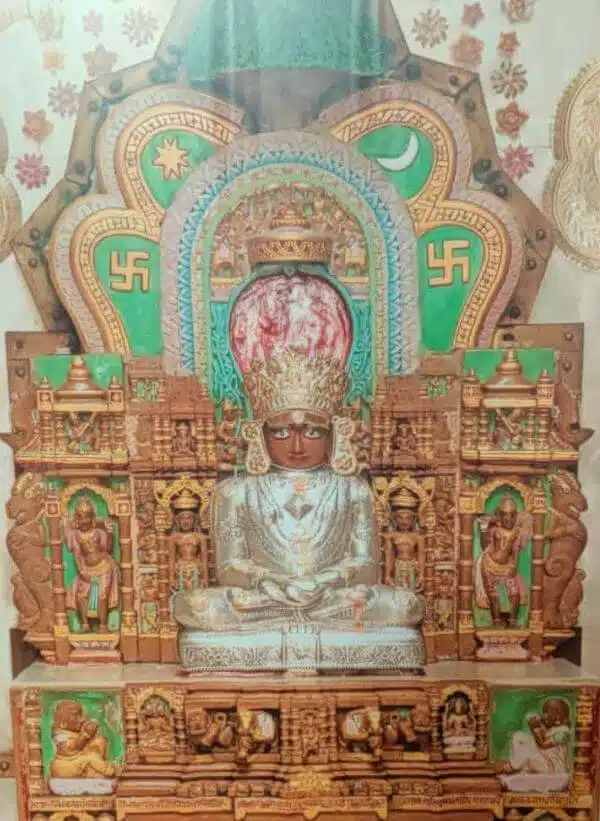
Anantnath
- Symbol: Falcon
- Birthplace: Ayodhya
- Father: Simhasen
- Mother: Suyasha
- Time Period: Prehistoric (30,00,000 Years)
- Key Teachings:Anantanatha was the emphasis upon the principles of non-possession and dedication of supreme goals only, the Jain principles are thus the principles of truth.
Anantanatha as a son of King Sinhasena and Queen Suyasha in the city of Ayodhya. He is best remembered for his wisdom and while he may have had little compassion this is considered to be one of the best deeds he ever performed since it was during his reign that this practice was effectively started. Later, understanding that everything coming into existence is temporary, he left the throne, and began to practice for the spiritual liberation of his soul. Thus, using meditation, Anantanatha arrived at the status of Kevala Jnana.
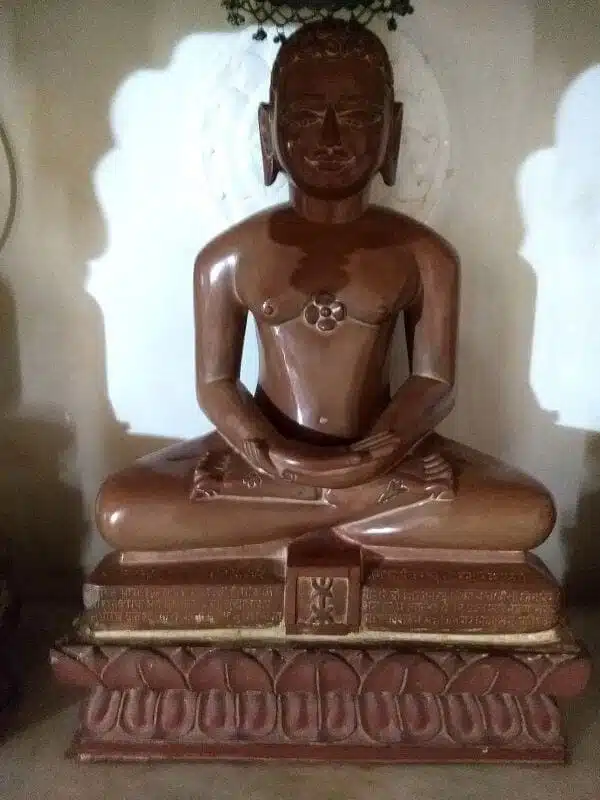
Dharmanath
- Symbol: Vajra/Thunderbolt
- Birthplace: Ratnapuri
- Father: Bhanu
- Mother: Suvrata
- Time Period: Prehistoric (10,00,000 Years)
- Key Teachings: Dharmanatha also gave the direction of righteousness, truth and ethical duty. He claimed that it is required for a person to be pious and moral in order to advance in the spirit.
Fifteen Tirthankaras of the Jain tradition Dharmanatha was born in Kausambi in the house of a king Bhanu and his queen Suvrata. He was a righteous and just king, who was admired by the people to have justice and favour in his heart. Understanding the ephemeral nature of royal power and fame, Dharmanatha left his royal palace and Kingdom to follow a life of extreme Tapas. He set himself completely on the practices of meditation and spiritualism. Once he was thus dedicated to it, for the many years necessary, he became Kevala Jnana, the supreme omniscience.
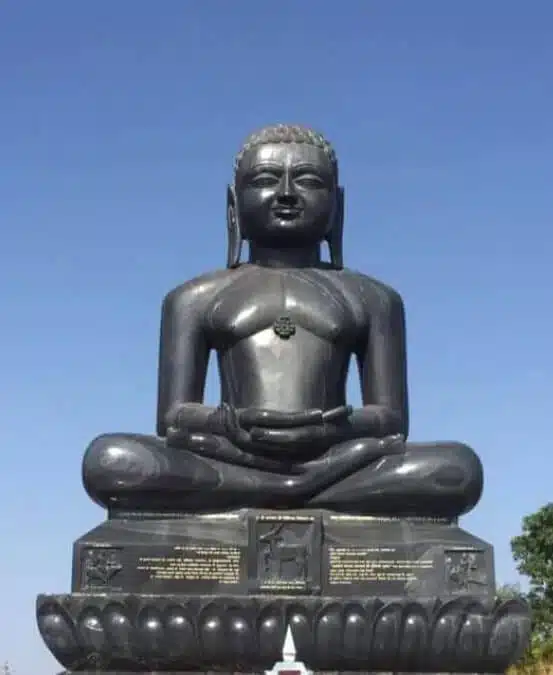
Shantinath
- Symbol: Deer
- Birthplace: Hastinapur
- Father: Vishvasen
- Mother: Achira
- Time Period: Prehistoric (1,00,000 Years)
- Key Teachings: Shantinatha was the god of non-violence,peace, inner stillness. Loving his balanced approach to teaching, he emphasised gentleness, harmony and internal civil war.
Shantinatha took birth in Shikharagiri from King Vishvasena and Queen Achira. He was famous for his calmness and understanding, thus governing the people with an emphasis on non-violent conflict resolution. Thus someday he realized the vanity of life, both in itself and in material possessions and he left his kingdom to become a hermit monk. Due to rigorous practice of meditation and self-control, he became a Jina, he achieved Kevala Jnana.
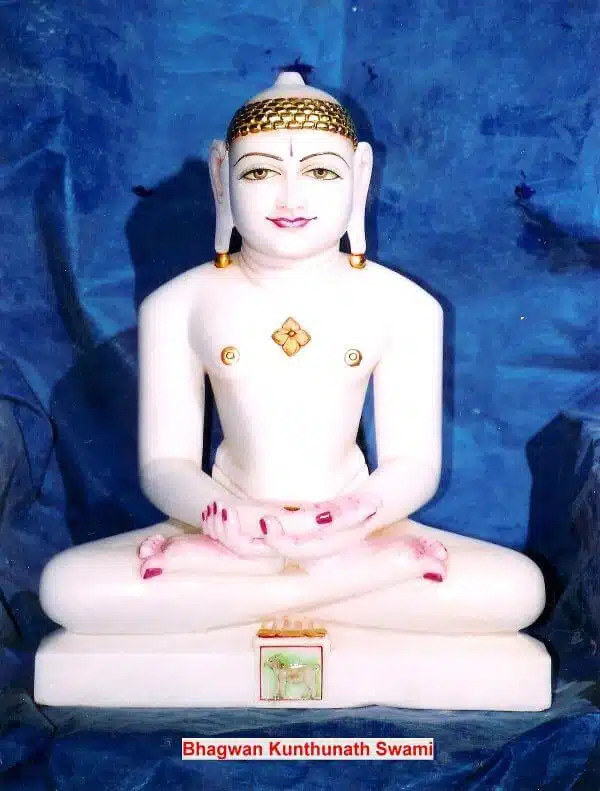
Kunthunath
- Symbol: Goat
- Birthplace: Hastinapur
- Father: Surasen
- Mother: Shree Devi
- Time Period: Prehistoric (95,000 Years)
- Key Teachings: Kûthunâtha bore up righteously teaching others to be kind to all the beings in the world. His principles of non-violence were applicable at all levels, and as a leader he practised this greatly.
Kunthunatha was born in Champa from the royal couple posing King Shursena and Queen Shridevi. He admired him for his intelligence as well as for his moral principle. After reigning justly, Kunthunatha decided to embrace an ascetic form of life, abdicate his kingship in order to follow the path of search for Truth. He performed severe austerity, he obtained Kevala Jnana – he who knows everything without any external help.

Aranath
- Symbol: Fish
- Birthplace: Hastinapur
- Father: Sudarshan
- Mother: Devi Rani
- Time Period: Prehistoric (84,000 Years)
- Key Teachings: Aranatha has preached non-attachment and the process of spiritual practice. He always preaches moderation when it comes to anything in life.
Aranatha was born to king Sudarshana and queen Devi at Ahalyapur. He was a king of justice and mercy. But, owing somewhat to the falsity of the world which he saw in this light and recognised as such after the glamour had passed from him, he gave up his kingdom and became a hermit. He is the person who gained deep and proper spirituality by practicing meditation.
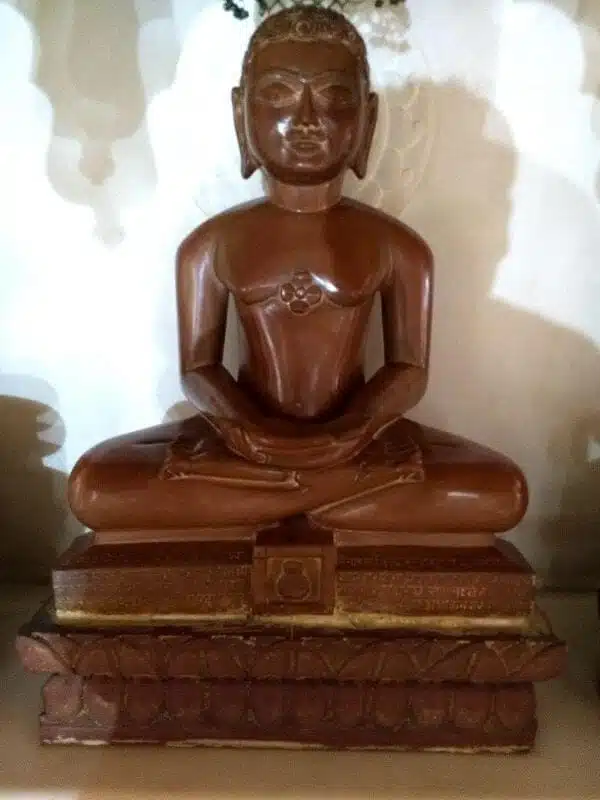
Mallinath
- Symbol: Water Pot
- Birthplace: Mithila
- Father: Kumbha
- Mother: Prabhavati
- Time Period: Prehistoric (55,000 Years)
- Key Teachings: Mallinatha thought that the man should be humble and the woman should be spiritual. Suffice it to say that Mallinatha deserves a special focus because he advocated for women’s rights in spiritual matters.
Mallinatha is special among the Tirthankaras because Mallinatha is the only female among all Tirthankaras. Mallinatha was daughter of King Kumbha and Queen Prabhavati born in Vallabhipur; Beautiful and intelligent. When she successfully finished her reign she gave up royalty and decided to become a spiritual woman. She successfully practiced austerities which brought her to the state of Kevala Jnana.
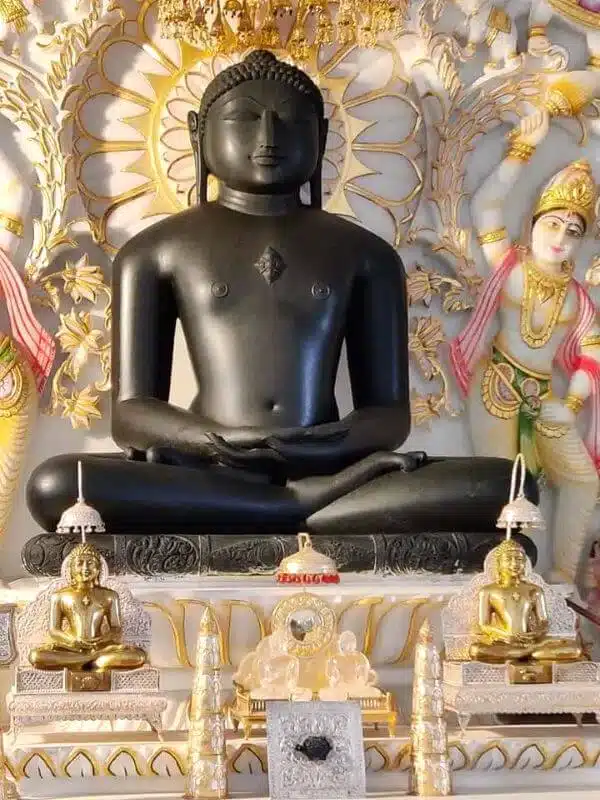
Munisuvratnath
- Birthplace: Kusagranagar
- Father: Sumitra
- Mother: Padmavati
- Time Period: Prehistoric (30,000 Years)
- Key Teachings: Munisuvratanatha concentrated in the aspect of tolerance and self-control. He taught suffering brings freedom and there is no liberation for those who cannot control themselves.
Munisuvrata was said to have been born to King Sumitra and Queen Padmavati in Pundarik. He was an introspective and very astute man. Having achieved much in political career and becoming a wise, just and compassionate monarch he abdicated to become a seeking Yogi. And by strict practice of meditation he became liberated from ignorance and aversion, and attained perfect knowledge.

Naminath
- Symbol: Blue Lotus
- Birthplace: Mithila
- Father: Vijay
- Mother: Vipra
- Time Period: Prehistoric (10,000 Years)
- Key Teachings: Naminatha called for union of the individual soul with the universal soul, non-violence and enlightenment. Blue Lotus is its symbol and those who have seen it only shows that you are a pure spirit on your way to enlightenment.
Naminatha was born in Rajagriha to the king Vijay Chakravathi and Queen Vapra Devi. Kind and wise man who became famous as Muarajah born in Qatar successfully governed his state only with kindness. He gave up power and kingdom when he came to understand that even it is temporary here in this material world. After deep concentration he received Kevala Jnana.
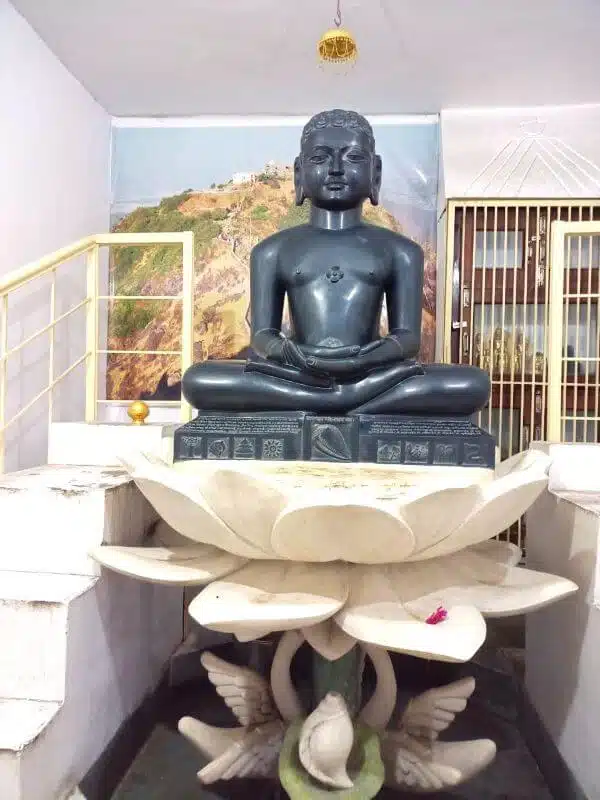
Neminath
- Symbol: Conch Shell
- Birthplace: Dwarka
- Father: Vijay
- Mother: Vipra
- Time Period: Contemporary of Lord Krishna (1,000 Years)
- Key Teachings: The religious instructs that Neminatha instituted the philosophy of non attachment to material possessions/ bhoga and compassion/ karuna. He also emphasized that nonviolence was a matter of belief and aspiration, as well as behavior.
Neminatha born to King Samudravijaya and Queen Shivadevi in Dwarka city. He was a man of justice and charity by nature stressing justice and welfare throughout his reign in the kingdom. Summum bonum being the realization of the materialistic glory, being devoid of permanency he退出 the world in the search for spiritual emancipation. By austerities and spiritual practices, he gained full and direct realisation at last and became a Kevala Jnani.
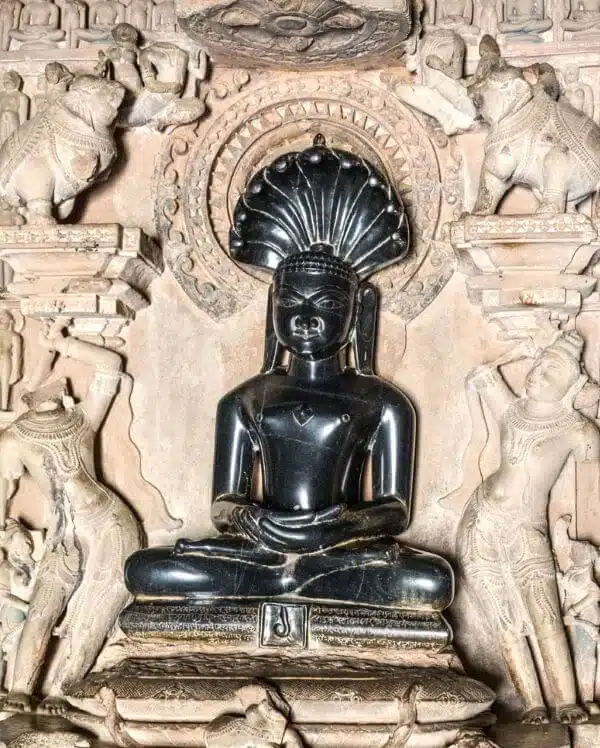
Parshvanath
- Symbol: Snake
- Birthplace: Kashi
- Father: Ashvasen
- Mother: Vama Devi
- Time Period: 877–777 BCE (100 Years)
- Key Teachings: Parshvanatha framed the five major vows of Jainism where the four fold vows of Jainism were combined non-violence, truth, non stealing and non possessions. They included the need for self denial, discipline, and being plain in the way one lived their life.
Parshvanatha’s birth as Parshva was to King Ashvasena and Queen Vamadevi at Varanasi. He was rightous minded king; his kingdom was dominated by non-violence and truth. Understanding illusory nature of the beautiful things of the world he abdicated the Kingdom and indulged in austerities. As with every other Jaina Saint, years of meditation led Parshavanatha to gain Kevala Jnana.
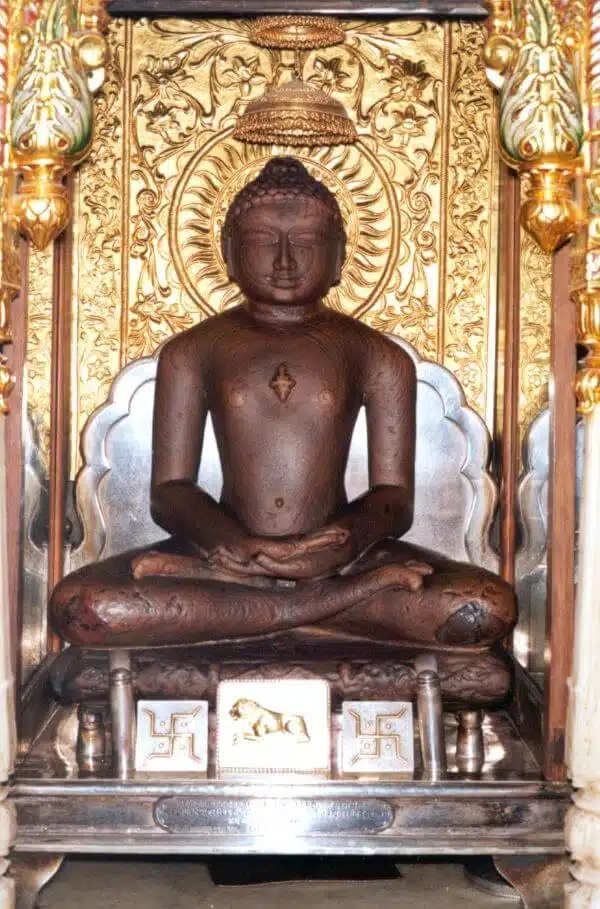
MahavirSwami
- Symbol: Lion
- Birthplace: Kshatriyakund
- Father: Siddharatha
- Mother: Trishala
- Time Period: 599–527 BCE (72 Years)
- Key Teachings: What is more, Mahavira is considered the most important among the Tirthankaras. He brought back the basic principles of Jainism namely Ahimsa – no violence, Satya – no lying, Brahmacharya – celibacy and Aparigraha – not possessing anything. He is responsible for shaping today’s Jainism movement.
Mahavira, originally known as Vardhamana is the last and by far the most famous Tirthankara in Jainism. He was born around 599 BCE in the city of Vaishali kingdom, to its king Siddhartha and Queen Trishala. From childhood Mahavira had profound religious perception and great sensitivity. He gave up his royal lifestyle after the death of his parents at the age of 30, to seek a spiritual path. He followed rigorous tapasya or penance and meditation for twelve years and then got the state of Kevala Jnana which makes the individual all knowing. After attaining his enlightenment Mahavira was totally involved in the preaching the tenets of Jainism and setting up a major Jain order of monks and Nun.
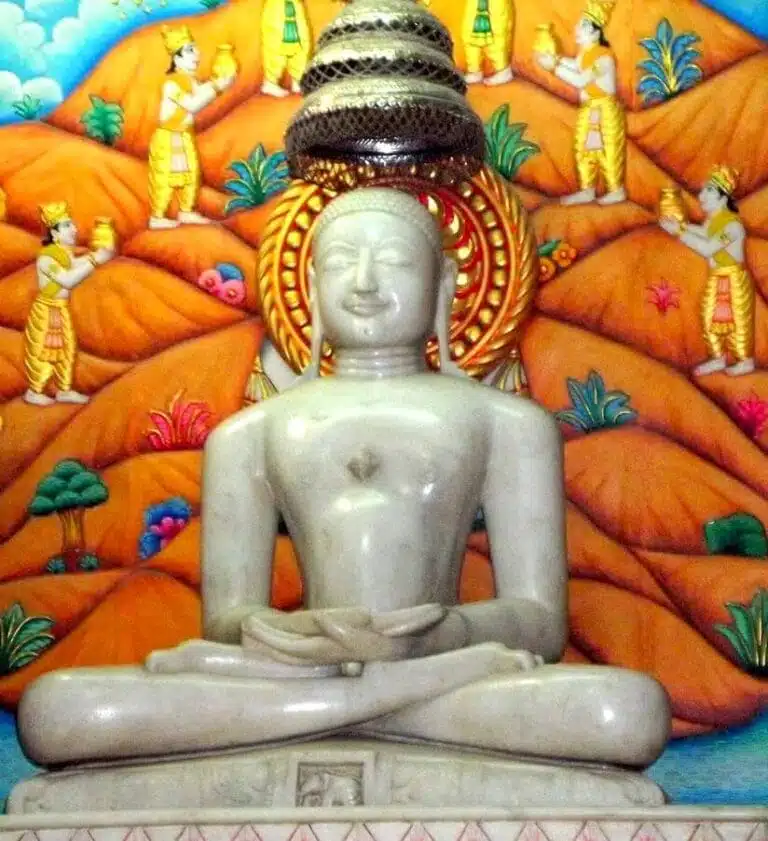
Ajitanatha
- Symbol: Elephant
- Birthplace: Ayodhya
- Father: JitSatru
- Mother: Vijaya
- Time Period: Prehistoric (72,00,000 Purva)
- Key Teachings: Ajitanatha underlined non-attachment and self control. He propounded how it is possible to gain spiritual growth through denial of material possessions.
Ajitanatha the second Tirthankara was born to the royal couple, Jitashatru and Vijaya. Like Rishabhanatha, Ajitanatha was also royal and he ruled a kingdom to prosperity. His childhood taught tolerance and knowledge, as well as a well-developed sense of justice. He left his worldly life to which he was a royal prince after witnessing the reality of life and he decided to practice asceticism. He did harsh austerities and finally embraced Kevala Jnana.
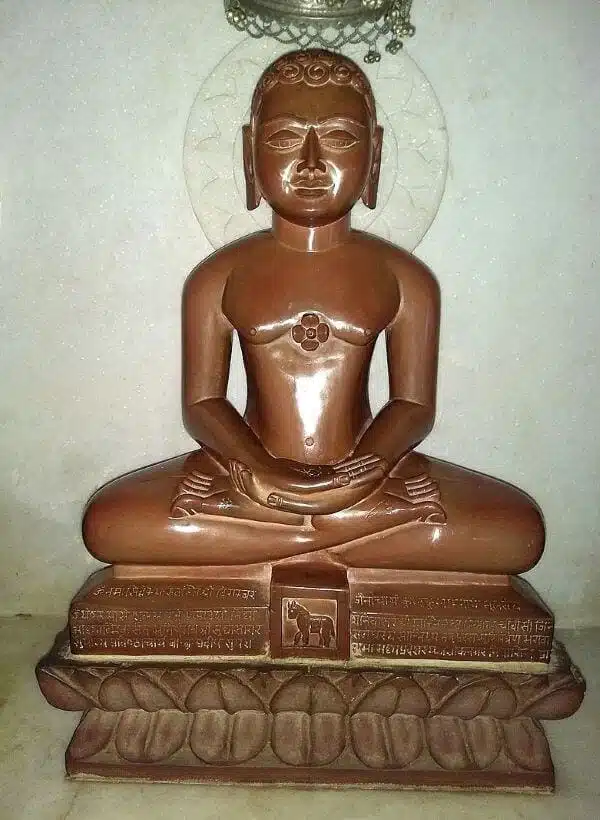
Sambhavanatha
- Symbol: Horse
- Birthplace: Shravasti
- Father: Jitari
- Mother: Sena
- Time Period: Prehistoric (60,00,000 Purva)
- Key Teachings: Sambhavanatha addressed himself to non-violence and order, and emphasized that, while morality is the means to liberation, one must avoid all forms of immoral action.
Sambhavanatha was born to King Jitari and Queen Susena, it was said that he enjoyed a great and compassionate life. During his childhood he displayed a strong caring attitude towards all forms of life. During his reign there was justice, welfare, and moral leadership in the state. He then came to the conclusion that only spirituality will lead to actual serenity. With his period of kingly rule, Sambhavanatha left his kingdom, and with penances, he achieved omniscience.
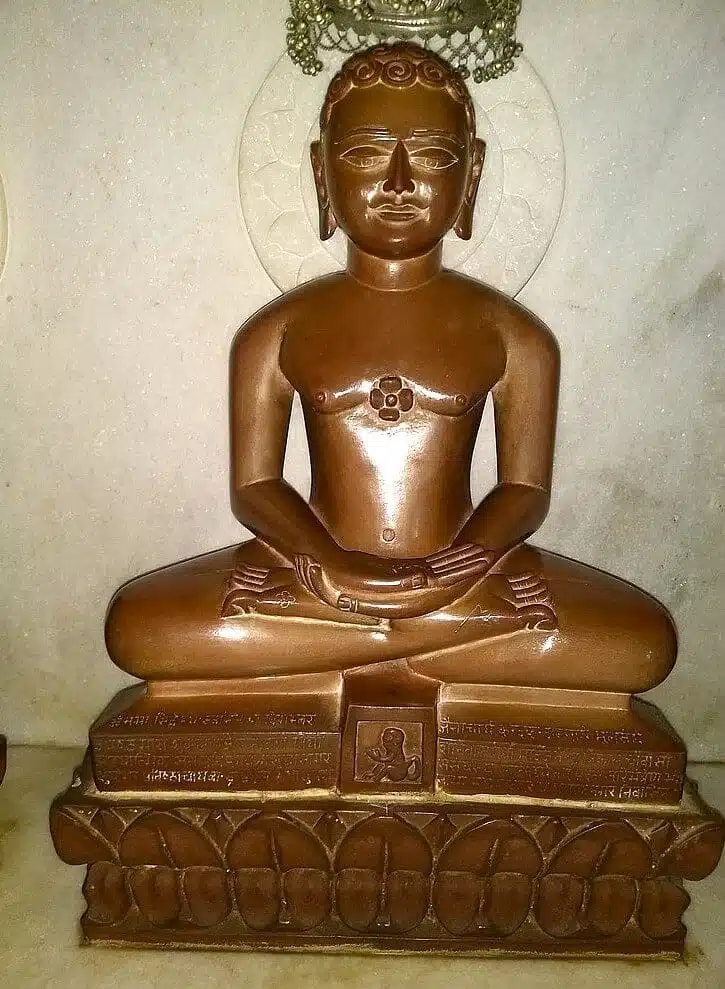
AbhinandanSwami
- Symbol: Monkey
- Birthplace: Samet Sikhar
- Father: Samvar
- Mother: Siddhartha
- Time Period: Prehistoric (50,00,000 Purva)
- Key Teachings: Abhinandananatha is well known for advocating non-attachment to material things, as well as for encouraging people to practice and meditate since it brings light.
Abhinandananatha a Jaina saint who attained salvation was born in Mithila to King Sinha and Queen Satyaki. He was modest and lowly; and gentle. He was involved in a simple life of service to his kingdom. Then he quit his throne, his materialism despairing him to seek the reality of spirituality. He then attained absorption and reached Kevala Jnana; for the rest of his life, he taught the way to attain moksha.

Sumatinath
- Symbol: Goose
- Birthplace: Ayodhya
- Father: Megharath
- Mother: Mangla Devi
- Time Period: Prehistoric (40,00,000 Purva)
- Key Teachings: Sumatinatha explained about understanding, clear vision and right actions. He also supported peace and humane life principles demoralizing unethical behaviors.
The Sumatinatha was born to Megha, who was the king and Mangala, the queen of the kingdom. He was a bright child right from childhood hence was nicknamed Sumati which translates to wise intellect. He was a king extraordinaire who governed his kingdom right, if not left, which saw many of his people living affluent lives. Finally, he heard the call of higher knowledge and became a sage, which means that he left the world. He became all-knowing after performing long austerities.
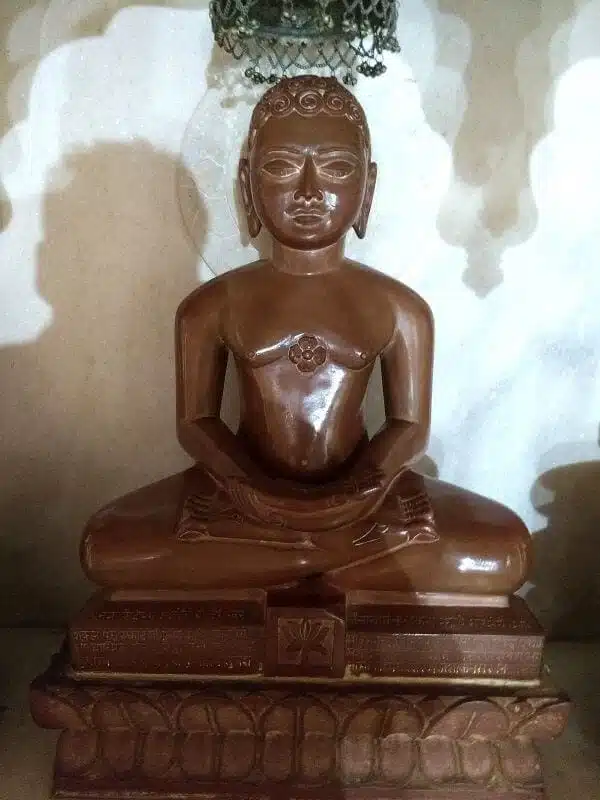
Padmaprabha
- Symbol: Swastika
- Birthplace: Samet Sikhar
- Father: Pratishtha
- Mother: Prithvi Devi
- Time Period: Prehistoric (20,00,000 Purva)
- Key Teachings: Suparshvanatha preached his message of hands Violence and embraced a moderate way of living and protecting the mental self-training of the followers.
Padmaprabha was born as a prince to King Shridhar and Queen Susima. He was named after the lotus since he had a beautiful fair complexion. A responsible and sympathetic monarch who spent all the time of his reign thinking about his subjects. But he quickly came to understand that material success was transient, so after giving up his throne he wanted to put an end to ignorance and gain release. He gets his Kevala Jnana after deep concentration.

Suparshvanath
- Symbol: Crescent Moon
- Birthplace: Chandrapuri
- Father: Mahasen
- Mother: Lakshmana
- Time Period: Prehistoric (10,00,000 Purva)
- Key Teachings: Chandraprabha over the body centred on calmness and tranquility of mind. He urged them to be composed, to avoid anger, and to be intelligent, in other words, non-violent.
Suparshvanatha was the son of a king Pratistha and a queen Prithvi. This kid had so much wisdom and compassion for every one from the moment that he was born. He was kind, fair and a wise king who still the way of his predecessors relinquished his throne for the purpose or a spiritual life. Suparshvanatha got liberated after numerous years of practicing meditation, and austerity.

Chandraprabha
- Symbol: Crescent Moon
- Birthplace: Chandrapuri
- Father: Mahasen
- Mother: Lakshmana
- Time Period: Prehistoric (10,00,000 Purva)
- Key Teachings: Chandraprabha over the body centred on calmness and tranquility of mind. He urged them to be composed, to avoid anger, and to be intelligent, in other words, non-violent.
Chandraprabha, the first-born child of King Mahasena and Queen Lakshmana was born in Sri Lanka. He was known to be quiet, calm and collected and he exercised his power fairly and benignly. He got more and more dissatisfied with the ephemeral nature of the rewards this world offers and took up the life of a hermit. Kevala Jnana was gained by him after intense meditation or the practice of deep penance.

Suvidhinath
- Symbol: Crocodile
- Birthplace: Kakandi
- Father: Sugriva
- Mother: Rama Rani
- Time Period: Prehistoric (2,00,000 Purva))
- Key Teachings: Suvidhinatha also showed the principle of charity, righteousness and selflessness is the way to be led to the path of liberation..
Suvidhinatha was born from King Sugriva and Queen Rama. From what is on record, he was blessed with a fantastic brain and superb skills. He lived fairly for many years as a king exercising justice and fairly ruling the kingdoms, upon which the desire for worldly things diminished and he abandoned the secular. By very strict self rule, Suvidhinatha became omniscient.

Shitalnath
- Symbol: Wishing Tree (Kalpavriksha)
- Birthplace: Bhadrikpuri
- Father: Dradharath
- Mother: Nanda Rani
- Time Period: Prehistoric (1,00,000 Purva)
- Key Teachings: Shitalanatha thus taught non-activity, non-attachment to the body and calmness. More to that he said that the soul is not nurtured by food, or water but only when one’s mind is at rest.
Shitalanatha was the son of King Dridharatha and Queen Nanda. He was a great ruler who was fair and kind, as all Tirthankaras were, but like all other Tirthankaras, he saw the impermanence of the world. He gave up his throne and sought salvation through austerity and yoga ultimately attaining the state of Kevala Jnana.

Shreyansanath
- Symbol: Rhinoceros
- Birthplace: Samet Sikhar
- Father: Vishnu
- Mother: Vishnu Devi
- Time Period: Prehistoric (84,00,000 Years)
- Key Teachings: Shreyanasanatha seemed to gain support towards right conduct, restraint and proper conduct towards the attainment of Spiritual progress.
Shreyansanatha was born in Simhapuri city to parents who were King Vishnu and Queen Vishnu Devi. Even as a boy, he was endowed with good hearts, which characterized his reign as a king, and a wise one. Finally, he abdicated and turned into a hermit. Shreyansanatha had been so proficient in his penance that he eventually rose to omniscience.

Vasupujya
- Symbol: Buffalo
- Birthplace: Champapuri
- Father: Vasupujya
- Mother: Jaya Devi
- Time Period: Prehistoric (72,00,000 Years))
- Key Teachings: Vasupujya preached on asceticism and temperance, which preached patience and tolerance, simple living and steadiness and removal of desire.
Vasupujya was born in the city of Champapuri from parents King Vasupujya and Queen Jaya. A hero and a benevolent king, who defended his people and protected them from misfortune and troubles which troubled the rest of the country. These experiences have beel narrated to portray King Bharat as a successful monarch, but he had requisite spiritual life, so left the kingdom in the search of realization. Through years of penitentiary, Vasupujya got Kevala Jnana.
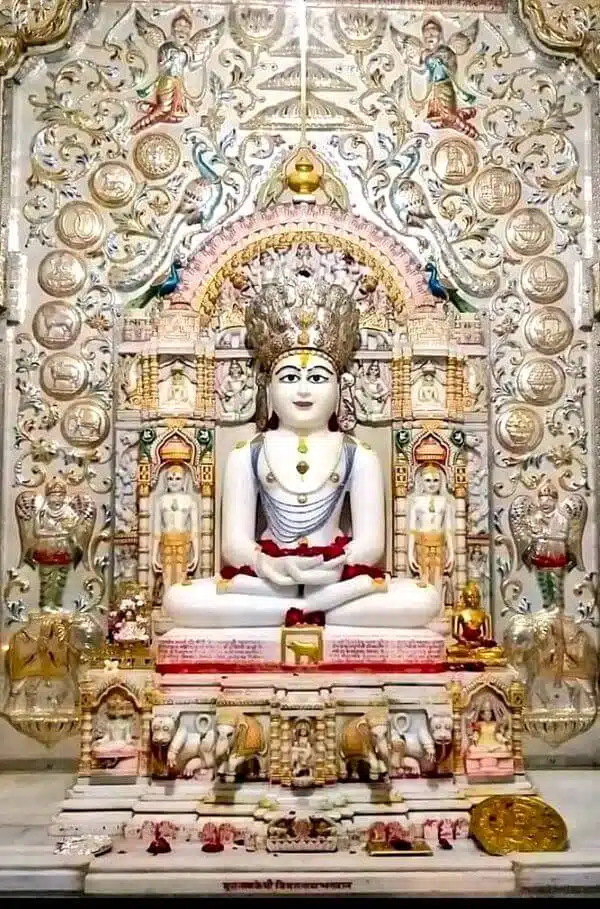
Vimalnath
- Symbol: Boar
- Birthplace: Kampilya
- Father: Krutavarma
- Mother: Shyama Devi
- Time Period: Prehistoric (60,00,000 Years)
- Key Teachings: Vimalanatha recognised the need for purity of both mind, body, and spirit. He was actually preaching honesty and obeying the laws of the land.
Vimalanatha was born to King Kratavarma and Queen Shyamadevi in Kampilya and was a descendent from sage Vishwamitra. When he acted as a king, he was always fair and had the clear conscience of most righteous men. But as the so-called Ellis understood that there is no eternity in the spirit of wealth, he abdicated from the throne and became an ascetic. After years of his penance he became omniscient.

Anantnath
- Symbol: Falcon
- Birthplace: Ayodhya
- Father: Simhasen
- Mother: Suyasha
- Time Period: Prehistoric (30,00,000 Years)
- Key Teachings: Anantanatha was the emphasis upon the principles of non-possession and dedication of supreme goals only, the Jain principles are thus the principles of truth.
Anantanatha as a son of King Sinhasena and Queen Suyasha in the city of Ayodhya. He is best remembered for his wisdom and while he may have had little compassion this is considered to be one of the best deeds he ever performed since it was during his reign that this practice was effectively started. Later, understanding that everything coming into existence is temporary, he left the throne, and began to practice for the spiritual liberation of his soul. Thus, using meditation, Anantanatha arrived at the status of Kevala Jnana.

Dharmanath
- Symbol: Vajra/Thunderbolt
- Birthplace: Ratnapuri
- Father: Bhanu
- Mother: Suvrata
- Time Period: Prehistoric (10,00,000 Years))
- Key Teachings: Dharmanatha also gave the direction of righteousness, truth and ethical duty. He claimed that it is required for a person to be pious and moral in order to advance in the spirit.
Fifteen Tirthankaras of the Jain tradition Dharmanatha was born in Kausambi in the house of a king Bhanu and his queen Suvrata. He was a righteous and just king, who was admired by the people to have justice and favour in his heart. Understanding the ephemeral nature of royal power and fame, Dharmanatha left his royal palace and Kingdom to follow a life of extreme Tapas. He set himself completely on the practices of meditation and spiritualism. Once he was thus dedicated to it, for the many years necessary, he became Kevala Jnana, the supreme omniscience.

Shantinath
- Symbol: Deer
- Birthplace: Hastinapur
- Father: Vishvasen
- Mother: Achira
- Time Period: Prehistoric (1,00,000 Years)
- Key Teachings: Shantinatha was the god of non-violence,peace, inner stillness. Loving his balanced approach to teaching, he emphasised gentleness, harmony and internal civil war.
Shantinatha took birth in Shikharagiri from King Vishvasena and Queen Achira. He was famous for his calmness and understanding, thus governing the people with an emphasis on non-violent conflict resolution. Thus someday he realized the vanity of life, both in itself and in material possessions and he left his kingdom to become a hermit monk. Due to rigorous practice of meditation and self-control, he became a Jina, he achieved Kevala Jnana

Kunthunath
- Symbol: Goat
- Birthplace: Hastinapur
- Father: Surasen
- Mother: Shree Devi
- Time Period: Prehistoric (95,000 Years)
- Key Teachings: Kûthunâtha bore up righteously teaching others to be kind to all the beings in the world. His principles of non-violence were applicable at all levels, and as a leader he practised this greatly.
Kunthunatha was born in Champa from the royal couple posing King Shursena and Queen Shridevi. He admired him for his intelligence as well as for his moral principle. After reigning justly, Kunthunatha decided to embrace an ascetic form of life, abdicate his kingship in order to follow the path of search for Truth. He performed severe austerity, he obtained Kevala Jnana – he who knows everything without any external help.

Aranath
- Symbol: Fish
- Birthplace: Hastinapur
- Father: Sudarshan
- Mother: Devi Rani
- Time Period: Prehistoric (84,000 Years))
- Key Teachings: Aranatha has preached non-attachment and the process of spiritual practice. He always preaches moderation when it comes to anything in life.
Aranatha was born to king Sudarshana and queen Devi at Ahalyapur. He was a king of justice and mercy. But, owing somewhat to the falsity of the world which he saw in this light and recognised as such after the glamour had passed from him, he gave up his kingdom and became a hermit. He is the person who gained deep and proper spirituality by practicing meditation.

Mallinath
- Symbol: Water Pot
- Birthplace: Mithila
- Father: Kumbha
- Mother: Prabhavati
- Time Period: Prehistoric (55,000 Years)
- Key Teachings: Mallinatha thought that the man should be humble and the woman should be spiritual. Suffice it to say that Mallinatha deserves a special focus because he advocated for women’s rights in spiritual matters.
Mallinatha is special among the Tirthankaras because Mallinatha is the only female among all Tirthankaras. Mallinatha was daughter of King Kumbha and Queen Prabhavati born in Vallabhipur; Beautiful and intelligent. When she successfully finished her reign she gave up royalty and decided to become a spiritual woman. She successfully practiced austerities which brought her to the state of Kevala Jnana.
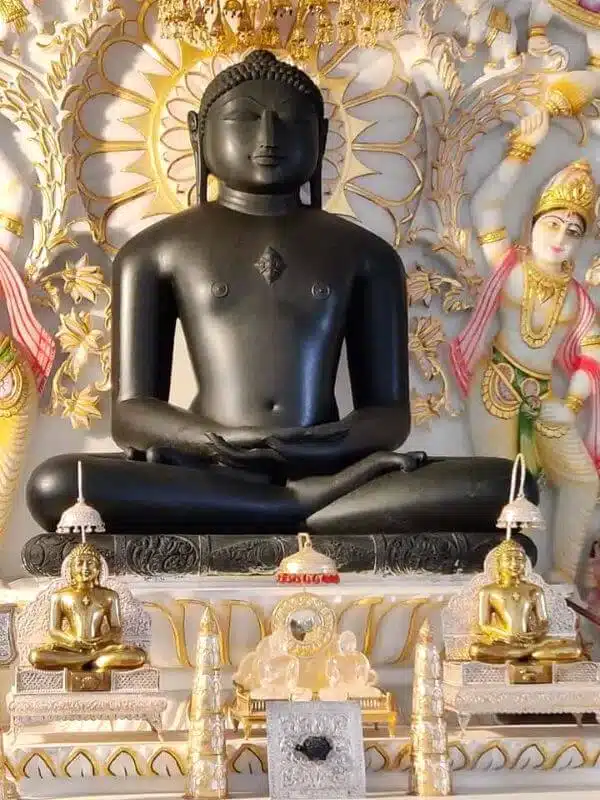
Munisuvratnath
- Symbol: Tortoise
- Birthplace: Kusagranagar
- Father: Sumitra
- Mother: Padmavati
- Time Period: Prehistoric (30,000 Years)
- Key Teachings: Munisuvratanatha concentrated in the aspect of tolerance and self-control. He taught suffering brings freedom and there is no liberation for those who cannot control themselves.
Munisuvrata was said to have been born to King Sumitra and Queen Padmavati in Pundarik. He was an introspective and very astute man. Having achieved much in political career and becoming a wise, just and compassionate monarch he abdicated to become a seeking Yogi. And by strict practice of meditation he became liberated from ignorance and aversion, and attained perfect knowledge.

Naminath
- Symbol: Blue Lotus
- Birthplace: Mithila
- Father: Vijay
- Mother: Vipra
- Time Period: Prehistoric (10,000 Years)
- Key Teachings: Naminatha called for union of the individual soul with the universal soul, non-violence and enlightenment. Blue Lotus is its symbol and those who have seen it only shows that you are a pure spirit on your way to enlightenment.
Naminatha was born in Rajagriha to the king Vijay Chakravathi and Queen Vapra Devi. Kind and wise man who became famous as Muarajah born in Qatar successfully governed his state only with kindness. He gave up power and kingdom when he came to understand that even it is temporary here in this material world. After deep concentration he received Kevala Jnana.

Neminath
- Symbol: Conch Shell
- Birthplace: Dwarka
- Father: Vijay
- Mother: Vipra
- Time Period: Contemporary of Lord Krishna (1,000 Years)
- Key Teachings: The religious instructs that Neminatha instituted the philosophy of non attachment to material possessions/ bhoga and compassion/ karuna. He also emphasized that nonviolence was a matter of belief and aspiration, as well as behavior.
Neminatha born to King Samudravijaya and Queen Shivadevi in Dwarka city. He was a man of justice and charity by nature stressing justice and welfare throughout his reign in the kingdom. Summum bonum being the realization of the materialistic glory, being devoid of permanency he退出 the world in the search for spiritual emancipation. By austerities and spiritual practices, he gained full and direct realisation at last and became a Kevala Jnani.

Parshvanath
- Symbol: Snake
- Birthplace: Kashi
- Father: Ashvasen
- Mother: Vama Devi
- Time Period: 877–777 BCE (100 Years)
- Key Teachings: Parshvanatha framed the five major vows of Jainism where the four fold vows of Jainism were combined non-violence, truth, non stealing and non possessions. They included the need for self denial, discipline, and being plain in the way one lived their life.
Parshvanatha’s birth as Parshva was to King Ashvasena and Queen Vamadevi at Varanasi. He was rightous minded king; his kingdom was dominated by non-violence and truth. Understanding illusory nature of the beautiful things of the world he abdicated the Kingdom and indulged in austerities. As with every other Jaina Saint, years of meditation led Parshavanatha to gain Kevala Jnana.

MahavirSwami
- Symbol: Lion
- Birthplace: Kshatriyakund
- Father: Siddharatha
- Mother: Trishala
- Time Period: 599–527 BCE (72 Years)
- Key Teachings: What is more, Mahavira is considered the most important among the Tirthankaras. He brought back the basic principles of Jainism namely Ahimsa – no violence, Satya – no lying, Brahmacharya – celibacy and Aparigraha – not possessing anything. He is responsible for shaping today’s Jainism movement.
Mahavira, originally known as Vardhamana is the last and by far the most famous Tirthankara in Jainism. He was born around 599 BCE in the city of Vaishali kingdom, to its king Siddhartha and Queen Trishala. From childhood Mahavira had profound religious perception and great sensitivity. He gave up his royal lifestyle after the death of his parents at the age of 30, to seek a spiritual path. He followed rigorous tapasya or penance and meditation for twelve years and then got the state of Kevala Jnana which makes the individual all knowing. After attaining his enlightenment Mahavira was totally involved in the preaching the tenets of Jainism and setting up a major Jain order of monks and Nun.

Rishabhdev
- Symbol: Bull
- Birthplace: Ayodhya
- Father: Nabhi
- Mother: Maru Devi
- Time Period: Prehistoric (84,00,000 Purva)
- Key Teachings: According to Jain tradition, Rishabhanatha the first Tirthankara who is believed to have institutionalized agriculture business faculty and other basics of life. He gave people lessons on individual independence, right and wrong ways of life that set the format of Jainism religion.
Rishabhanatha or Adinatha is the first of twenty-four Tirthankaras, sacred Jain souls who made vows to stay away from worldly sins and materialistic aspects of life. He is thought to have lived during the early days of human culture. He was the son of a world monarch King Nabhi and Queen Marudevi and he governed his kingdom with knowledge and kindness. He explained to people such things as farming, rearing of livestock, and barter which formed the basis of a more refined society. On completion of his responsibilities towards the royalty, he abandoned his palace life, practiced rigorous austerity, and achieved Kevala Jnana (means omniscience). They say he had been spending many of his years passing the knowledge and preaching on how to attain moksha and finally got liberated at Mount Kailash.
